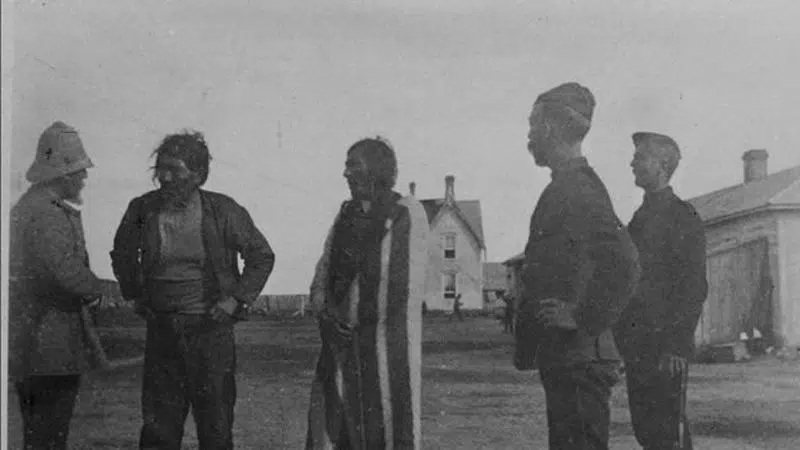
In the news today, May 23
Four stories in the news for Thursday, May 23
———
TRUDEAU TO EXONERATE CHIEF POUNDMAKER

Four stories in the news for Thursday, May 23
———
TRUDEAU TO EXONERATE CHIEF POUNDMAKER
Prime Minister Justin Trudeau is to visit a Saskatchewan First Nation today to exonerate a chief unjustly convicted of treason more than 130 years ago. Trudeau is to vindicate Chief Poundmaker during a ceremony at the reserve that bears his name — Poundmaker Cree Nation — about 200 kilometres northwest of Saskatoon. Members of the First Nation describe Poundmaker as an important political leader who spoke out against Treaty 6 and stood up for his people at the time of the 1885 Northwest Rebellion. They say Poundmaker was inappropriately labelled a traitor even though he stopped First Nations fighters from going after retreating federal forces that had attacked them.
———
PARTIES SHOP FOR HOUSING IDEAS FOR PLATFORMS
Federal parties are preparing to chase voters with ideas for dealing with what a new survey suggests is a major concern across the country — housing affordability. The ideas being shopped around to stakeholders in the housing sector include spending on certain groups, such as veterans, and more spending to increase the supply of lower-cost housing units to further cool housing prices. The struggle with affordability and the price of housing in some markets is shaping up to be a key campaign issue. A survey being released today, conducted for the Federation of Canadian Municipalities, suggests the cost of housing is seen as having the largest effect on quality of life in Canadian cities.
———
ACCESSIBILITY BILL A STEP CLOSER TO BECOMING LAW
Canada’s accessibility minister says the government will be acting on the Senate’s proposed recommendations to strengthen the country’s first piece of accessibility legislation for people with disabilities. Carla Qualtrough sent a letter to disabled advocates saying the government planned to accept all the amendments senators had proposed for the Accessible Canada Act. Earlier this month, the Senate committee on social affairs, science and technology adopted several amendments that nearly a hundred disability organizations said were necessary to make the law effective. Chief among them was a call to set a timeline requiring the act to be fully implemented by 2040, as well as recognition of sign language as an official language among deaf Canadians.
———
CLEAN-ENERGY SECTOR GROWTH OUTPACES CANADA’S
Canada’s clean-energy sector says it’s growing faster than the economy as a whole and is rivalling some better-known industries for jobs. Clean Energy Canada is releasing a study today it commissioned to try to paint the first real picture of an industry it feels nobody knows much about but that is critically important to the future both in terms of climate change and the economy. Nearly 300,000 people are directly employed across the industry, which encompasses everything from renewable-energy production and transfer to public transit and entrepreneurs developing products to help us live our lives producing fewer greenhouse-gas emissions. The clean-energy industry accounted for three per cent of Canada’s GDP in 2017.
———
ALSO IN THE NEWS:
— Prime Minister Justin Trudeau will address the Federation of Sovereign Indigenous Nations at its annual general assembly today in Meadow Lake, Sask.
— The verdict is expected today in the case of a Halifax police officer charged with assaulting a homeless man outside a shelter.
— Meteorologists from the Canadian Hurricane Centre will be in Dartmouth, N.S., today to discuss the general outlook for the upcoming 2019 hurricane season and the steps Canadians can take to be prepared.
The Canadian Press